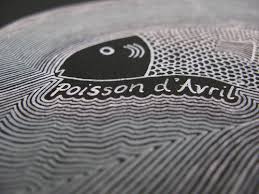
By Magdalena Knapp, Editor
Yesterday, despite the rain and the sudden snowfall, many of you might have gone on an Easter egg hunt, running all around the house and garden to find the hidden chocolate eggs and Easter bunnies. Some of you might also have used the occasion to prank one of your favorite family members or friends, because yesterday was not only Easter but also April 1st which for many of us means: Ready, Set, Prank! So, where does the tradition of April Fools Day come from? The McK Review team dug into the history books for you and tried to find out!
April 1st, also known as “All Fools’ Day” or “April Fools’ Day,” has been celebrated for hundreds of years all over the world. Historians believe that the holiday was ‘born’ in 1582, when France changed from the Julian calendar to the Gregorian calendar. This meant the start of the new year was officially moved from April 1st to January 1st. Some people did not get the message, though, and kept celebrating New Year’s Eve during the last week of March. Because of this faux pas, people started making jokes about the unsuspecting, and the tradition of pranks was born.
 A common prank was to place a paper fish onto the fool’s back which read “poisson d’avril”, which is French for ‘April fish’. It stands for a person who is easy to influence, aka an easily caught fish.
A common prank was to place a paper fish onto the fool’s back which read “poisson d’avril”, which is French for ‘April fish’. It stands for a person who is easy to influence, aka an easily caught fish.
Nowadays people use this day as an excuse to make fun of other people and prank them; even newspapers, radios and TV stations use this day to make fun of their audience. In 1957, BBC, a worldwide and well-known news channel, showed footage of people harvesting noodles from trees. Many people believed the photoshopped footage and were fooled. Students often make use of this day too by pranking their teachers, and vice versa! Last year, a teacher named Joe Dombrowski went viral for the spelling test prank he pulled on his students.
Do you have any fun stories or experiences with April Fools’ Day? Share your story with us, and maybe you can inspire some of our readers for next year’s April Fools’ Day. The countdown is on!
This is a really fun analysis of the history of April Fool’s Day. I think it would be cool to see more modern examples of how media works with April Fool’s Day past the spelling test prank and the BBC prank, but the analysis is really interesting.